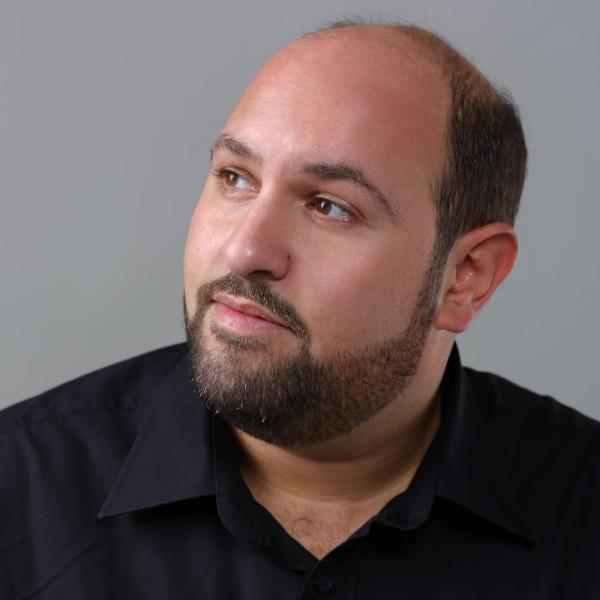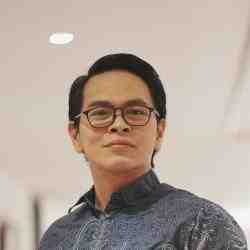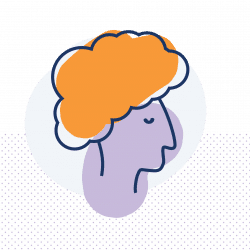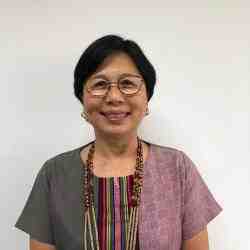Introduction
Adam is shifting the focus of Egyptian business culture to the green economy. He is creating a new generation of entrepreneurs with a green mindset (environment friendly and socially responsible) and empowering them through an enabling environment for inclusive, green businesses and social innovations in urban and rural areas.
The New Idea
Adam is creating spaces which foster a culture of social innovation and green technology innovation in urban and rural areas. These spaces use participatory approaches to empower Egyptian communities to convert their daily sustainability challenges (agricultural challenges, water, soil, energy, food ...etc) into innovative, affordable, replicable and open source solutions to address their local needs. These solutions become responsible and inclusive green businesses improving the quality of life for the Base of the Pyramid (BoP) whilst providing opportunities for income generation.
Adam’s idea consists of four main components; three in urban areas and one in rural areas. In urban areas, Adam empowers youth to create innovative low cost technology solutions for sustainability challenges and convert them into tangible products and businesses (for example: developing a $150 solar water heater in response to diesel shortages). First, he established icecairo, acronym for Innovation, Collaboration and Entrepreneurship, a co-working environment targeting youth, especially unemployed, and pre-incubating their ideas. ICE Cairo provides technical know-how, prototyping labs for locally applicable solutions and business capacity building as well as shared community expertise. By harnessing the power of their network, consisting of technical and business experts, media, NGOs and policy makers, youth are ready for business launch and market access. Second, Adam is institutionalizing fabrication laboratories (Fab-labs) in engineering schools across different universities to allow students to prototype potential affordable tech solutions for sustainability challenges. Third, the physical co-working space and university Fab-labs are complemented by an open source, evolving e-learning platform that aggregates all the technical know-how of the resulting innovations to allow solutions identified in one place to be available for replication by other communities and youth elsewhere. The prototypes and products generated by the ICECairo community are used to create responsible and inclusive green businesses which improve livelihoods through sustainable products and create economic opportunities for young Egyptians to access new markets, additionally it contributes to the growth of a sustainable green economy in Egypt.
In rural areas, Adam established Nawaya, an Arabic word meaning seeds, nucleus and intentions. Through Nawaya, Adam targets the farming community, in particular small scale farmers, introducing a farmers’ apprenticeship program, a 2-year intensive program that develops agricultural skills, exchanges experience between farmers through farmer-to-farmer educational videos, integrates sustainable farming practices on their land, and solves farming challenges through prototyping and demonstrating opportunities for creating agri-businesses to alleviate rural poverty.
To convert sustainability challenges into viable green business opportunities in rural and urban areas, Adam uses collaborative design methodologies to foster synergies within each community (like Art of Hosting), which are internationally acclaimed for their ability to allow for integration between community members, crowdsource expertise and build on the shared power and experience of communities to reach desired solutions. This participatory approach creates a bottom-up model of sustainability that can be used to alter and create policy.
Adam’s idea aims to create communities that use local resources and skills to be self-sufficient and independent of subsidies or grants, allow rural and urban communities to solve their own challenges, turn those solutions into green products and services, and create youth employment that is socially responsible and environmentally friendly.
The Problem
Rural and urban communities in Egypt are heavily dependent on state subsidies across an entire spectrum of energy, food, infrastructure and other basic needs. This is exacerbated by the fact that energy, although heavily subsidized, is often very hard to get hold of. Egypt has a growing energy dependence that is manifesting into an energy crisis. Since 2010, Egypt’s oil consumption has outpaced its production, electricity consumption is increasing faster than capacity expansions, and Egypt has become a net importer of oil and is going in the same direction for natural gas. The resource deficiency that Egypt is facing is not only limited to energy, but also water and food. Egypt has an annual water deficiency of 7 billion cubic meters and imports about 40 percent of its food. There is a lack of self-reliance, on a national level, as a result of dependence on local and international governments and aid, associated with myriad problems such as poverty, unemployment, fragmentation, loss of skills, declining health and increased rural-urban migration.
In the urban context, poverty levels are rising in Egypt with 10% poverty among populations living in urban governorates during 2012. These constitute the Base of the Pyramid (BoP), a market whose needs, such as access to sewage, clean water, and energy, remain unaddressed. The majority of businesses in Egypt target high class and upper middle class customers characterized by their high purchasing power, leaving BoP citizens uncatered for.
Simultaneously, unemployment levels are rising in Egypt and in 2013, it was reported that youth constitutes 70.8% of the total unemployed, with around 10.6% aged between 15 and 19, and 20.9% ranging between 25 and 29 years old. The majority of the unemployed youth were found in the 20 to 24 year-old group, of which 39.3% were jobless.
In the rural context, in 2012, 51% of the Egyptian populations living in rural areas are poor. In 2008, the World Bank estimated that three quarters of the 18 million Egyptians living below the national poverty line lived in rural areas. Agriculture alone represents 13% of the country’s GDP, 20% of total export and 30% of total employment (55% when including agri-business). In 2006 it was estimated that 40% of rural populations were less than 14 years of age. These youth will be seeking decent income generating opportunities, and the agricultural sector should be able to meet their aspirations and provide potential employment opportunities in rural areas. The jobless rate in Egypt’s rural areas was last reported in 2013 to be 11.3 percent. Life in Egyptian villages often means a life in poverty. The productivity and growth of rural livelihoods is driven by its agriculture, yet farmers are increasingly vulnerable to environmental pressures stemming from unsustainable practices like irrigation and soil fertility management, illegal dumping, land grabbing and building on agricultural land, which results in decreasing land values. Small-scale farmers also struggle from the underlying issues tied to the farming value chain, where most benefits are focused on landowners with large farmlands.
Many of the farmers are dependent on farming inputs from government cooperatives and are indebted, making working in agriculture no longer profitable. Decreases in the profitability of farming will likely increase the already high levels of rural unemployment, leading to the vicious circle of skills loss and dependency.
It is within this context that a growth landscape and an enabling environment for businesses which are inclusive coupled with green job creation, particularly as a solution to community and sustainability challenges, becomes of such importance. Triple-bottom-line products will represent a shift in the Egyptian business culture, to one that relies on the valorization of community-based resources and skills to be socially responsible and environment friendly.
The Strategy
Adam’s strategy focuses on weaning urban and rural communities off dependency on government subsidies and assistance and transitions them towards resilient and self-reliant communities creating youth employment that is socially responsible and environmentally friendly. Adam achieves this through separate urban and rural initiatives.
In August 2012, Adam established ICE-Cairo (ICE – Innovation, Collaboration and Entrepreneurship) to act as the first green, low-cost technology and innovation hub and co-working space in Egypt, targeting youth to create the conditions needed for the emergence of green, inclusive businesses and jobs; in essence an Egyptian shift towards a green economy. To achieve this, Adam presents youth with green skills as well as business skills via ICE-Cairo's two flagship programs. First is the "Build- Your Start-Up" program for training on business planning skills like business model canvas and the lean startup model. Second is the "green products pre-incubator and fabrication lab –fab-lab", through which Adam empowers youth with green skills and a green mindset and offers them a fully-fledged fabrication lab to prototype their products and design their businesses.
ICE-Cairo's protocol or philosophy is based on creating a co-working space that allows NGOs, small businesses, aspiring entrepreneurs and students to share a working environment. Based on crowdsourcing the expertise of the network in the co-working space, community challenges are highlighted and assessed, followed by brainstorming potential solutions through collaborative research and identifying what worked elsewhere from previous ideas for solutions. This is followed by using rapid prototyping methodologies in ICE-Cairo's fab-lab to create tangible products. The pioneers of these products are then pre-incubated in the ICE-Cairo hub to build a business model (in the "Build-Your-Start-up" program) and have tested prototypes which enable them to be prepared for full incubation or investments by other ecosystem organizations, which are part of ICE-Cairo's growing network.
ICE-Cairo's protocol allows turning communities' sustainability challenges into opportunities. For example sewage treatment problems become opportunities for the development and implementation of biogas digesters. Ricestraw pollution becomes the cornerstone of insulation, green building materials and composting. Such product lines, when supported by an entrepreneurship ecosystem, ensure financial incentives, whilst designing and creating inclusive businesses that will serve local bottom-line communities and the surrounding environment.
The first product that applied Adam's methodology was a response to communities living on the Red-sea coast that experienced a diesel crisis and collapse of their main industry and source of income, tourism. To assist the community, youth in ICE-Cairo followed the co-working space's protocol and came up with a $150 solar water heater that is made from off-the-shelf parts by local Bedouins and are installed in their community. ICE-Cairo plans to continue with a line of need-based, cost-effective green technology solutions like solar lighting units, solar desalination units and biogas units to allow off-grid communities to thrive without dependence.
Through ICE-Cairo, Adam and his 5 team members along with the power of their network were able to train 1,500 people in over 80 different training workshops, spanning a wide skills spectrum from green skills like advanced solar energy applications, inclusive agri-businesses, green architecture, earth-bags, photo-voltaic systems installations and life-cycle assessment to soft and business skills. Six business ideas emerged from ICE-Cairo for incubation by other ecosystem organizations. These businesses have produced innovative solutions and started product lines that are all less than a $100 for up cycling plastic, solar desalination, bio-gas digesters and solar energy lanterns in off-grid communities.
Adam was additionally able to expand the ICE-concept to one Egyptian university through installing a mobile fab-lab in the Engineering school of Assiut University and is collaborating with the government to have a line of ICE-hubs and mobile fab-labs in other major universities.
ICE-Cairo had a spill-over effect and was already started by other youth in different Egyptian cities. Currently in 2014, there is ICE- Alexandria, in the north of Egypt and ICE-Aswan in the south of Egypt.
Adam finances ICE-Cairo through memberships from the hub network who use the co-working space and the fab-lab (currently 1900 members) as well as monetary grants from the German Foreign Office and Development Cooperation. For community members who cannot pay to join ICE-Cairo, Adam has developed a non-monetary currency called "ICE-bytes" whereby the hub members can contribute through teaching skills to other members or volunteering their time to the hub to gain bytes and access the different membership benefits.
Urban and rural communities in Egypt are both affected by sustainability challenges, although the affected populations may experience different consequences. Consequently, Adam realized that creating an environment of sustainable green businesses required a different approach in rural communities, which led him to co-create Nawaya, an Arabic word meaning “seeds” and “intentions”, in November 2011. Nawaya targets small-scale farmers in Egyptian rural areas and uses the basis of sustainable agriculture and product design to co-create a model for agri-businesses. Adam chose a local Egyptian community in the area of Abusir, Badrashin and its surrounding communities to execute his pilot. It's a community composed of 40,000 people of different migratory backgrounds which is why Adam chose it, for its diversity, to have this community act as a microcosm of Egyptian farming communities, and as such, solutions pioneered in Abusir can be scaled up and replicated elsewhere by local communities.
To get himself and his 3 team members acquainted with the area and build confidence amongst the local community, Adam and his team conducted preliminary interviews and discussions about the problems in the community with local NGO’s, individuals and land owners, brainstormed and assessed strategies and tools to assist in solving local issues, trained himself and the team to be able to tackle problems through a systems approach, visited different farming projects in the area of Badrashin and in other locations across Egypt, the Middle East and Africa and worked with a local NGO in the design of a project to alleviate and restore a blocked major water canal that services all the farmlands in the Abusir area. Adam's next step was to map the area of Abusir and find 10 changemaker farmers who were ready to join him in his pilot project and experiment on their land. These were the first ten apprentice farmers.
Adam’s Nawaya empowers farmers through an apprenticeship program. The first stage of this program focuses on building skills in sustainable agriculture and is complemented by farmer-to-farmer educational videos to facilitate an exchange of skills and knowledge. Secondly, Adam operates a demonstration centre in the local community of Abusir to showcase replicable models of eco-friendly rural development practices and appropriate low-cost technologies for challenges such as sewage treatment and rice-straw up-cycling. Finally, Adam has established a product development line that works with the local community to turn agricultural challenges into green products and businesses allowing farmers to become entrepreneurs themselves.
Through the sustainable agriculture program, funded by the Drosos Foundation, a 2 year intensive learning cycle and experimentation syllabus was co-developed by Adam, his team, agricultural experts and the farmers themselves based on their needs and challenges. The program is implemented in the form of workshops, field visits, field research and field practice (testing and prototyping). The curriculum focuses on permaculture design, eco-village design, soil building techniques, water management, integrating animals on the farm as well as good crop rotations that are profitable, seed saving and post harvesting practices. Farmers can also prototype and test in Nawaya's demonstration center. Additionally, the program creates farmer-to-farmer educational videos for building on the existing skills-set and ensuring the exchange of knowledge and best practices based on local needs as opposed to the more traditional top-down approaches typically practiced by the Ministry of Agriculture. Farmers receive a financial stipend for attending and passing the program and each is required to train 5 other farmers upon graduation to ensure spread and sustainability.
With regards to product development, Adam and his team have piloted one product-line with the apprentice-farmers, the Begawy-chicken. The selection of chicken to launch the product line was based on the fact that most farmers are already raising chicken and improving current production system would be facilitated by their knowledge base. The Begawy type of chicken has a higher nutritional value and environmental adaptability than other chicken in the market. A feasibility plan and training of farmers on product development and identification (market analysis, testing and packaging) all empowered the farmers to start a Begawy-chicken brand. The latter pilot will be used by Adam to present guidelines for developing and replicating agri-businesses with small-scale farmers.
Adam and his team have carried several trainings and training of trainers for environmental activists, farming extension workers and agriculture teachers on sustainable agriculture and permaculture to act as a growing network to disseminate Adam's approach to other farming communities.
To foster self-reliance at the community level, Adam allows rural and urban communities to solve their own challenges, turn them into green products and services, and become self-sufficient. The success of Adam's approach is ensured through a growing community of over 12,000 people from cross-sectoral backgrounds, including government, foreign aid, venture capitalists, incubators, private sector, academia and youth, all working together.
An integral aspect of Adam's approach is the creation of an evolving, applied-learning platform to allow for the creation of replicable and scalable solutions. The platform is entirely open-source, free to use, visual in nature and developed in the Arabic Language. Both ICE-Cairo and Nawaya have wikis, a green materials database and a green initiatives map. With ICE-hubs already spreading across different Egyptian governorates and plans to replicate Nawaya's model within other rural communities, all of these hubs and communities will share the same e-learning portal, allowing solutions identified in one place, to be replicated elsewhere.
In 5 years, Adam plans to spread the ICE-hubs concept to major cities in Egypt to create an environment capable of finding solutions for local sustainability challenges and share knowledge and resources with other hubs. He will also launch an e-commerce platform for all the green inclusive products that emerge from the ICE-hubs community. Simultaneously, Adam plans to establish a farmer’s cooperative in Abusir, consisting of farmers that are transitioning towards sustainable agriculture to have a unified front for generating income, creating jobs, accessing the market, and using local resources and materials. Additionally, Adam will create a famer-to-farmer TV series detailing sustainable agricultural methods to rural farming communities via mass media rather than top-bottom extension models.
Within 10 years, Adam plans to create ICE hubs in Dubai, Lebanon, Palestine, Jordan and Sudan. These hubs will be in tune with each other sharing what works on the ground, in a replicable manner. The majority of the youth that enter the ICE ecosystem will be more employable and have greater potential of creating businesses as a result of the skills gained through ICE-hub’s ecosystem.
Adam also plans to help communities transition towards sustainable livelihoods and establish a national organization or agency of sustainable communities with the ability to influence policy in agriculture, waste-management, subsidies and appropriate technology.
The Person
Adam was born to a family of entrepreneurs, an Egyptian mother and an English father, who are both successful in their fields, which immersed Adam in an entrepreneurial culture since a young age. This culture prompted him to start his first business at 12 years-old, selling home-made cakes in a park with his cousin.
After starting a university career in business at the American University in Cairo, Adam decided to take the risk of shifting his major to Philosophy, which was crucial in demonstrating to him how communities could and should be shaped towards full representation. He also understood more about society and citizens’ duties towards it. At 15 years old, Adam co-founded a business with his mother business in the design industry after which he established a business of his own, after graduation from university, for high-end interior-design export between Egypt and UK. The business experienced tough times and was destined to fail, but proved to be an instrumental experience for teaching Adam about good business practices.
The different experiences within the business sector, in addition to other employment opportunities before and during university, empowered Adam with entrepreneurial, team playing, independence, multi-tasking and managerial skills. However, it left him unsatisfied, feeling stuck to be only catering for a small percentage of the population to have luxurious houses while the majority was left in dire, poor conditions.
By the age of 21, Adam started working with youth as a mentor and got engaged in several social activities, which was an important step in his life to learn from others, not to be self-centered and understand that helping others pays back more than what the person expects. The experience also opened Adam's eyes on the uneven distribution of resources being the main underlying cause of poverty in Egypt, which was when Adam started thinking of self-reliance, its meaning and how it can be applied in the Egyptian context. With the break out of the Egyptian revolution in 2011, Adam was an active part of it driving forward the idea of non-violent resistance, and the major lesson learned by Adam was the importance of self-organization of communities and so he pursued this through joining communities like Art of Hosting (AoH) which harnesses group wisdom and social inclusion.
Adam capitalized on his previous experiences by studying Ecosystem services in Finland and attending several eco-village design workshops in Senegal which inspired him to work with rural communities to co-create models for sustainability. It was through the cumulative experience of the revolution, the AoH and his later education that Adam created his idea of Nawaya, followed by ICE-Cairo a year after. After meeting his partners, Adam decided to create self-reliant communities through collaborative, participatory approaches that could transform Egypt’s green economy. Nawaya was cited as the best practice for sustainable development in community inclusion as part of the DESS 2012 toolkit, part of the DEEEP EU initiative
Adam has been appointed the Middle East and North Africa ambassador of Global Eco-village Network and he is also a trainer of Eco-village design and an AoH facilitator.




